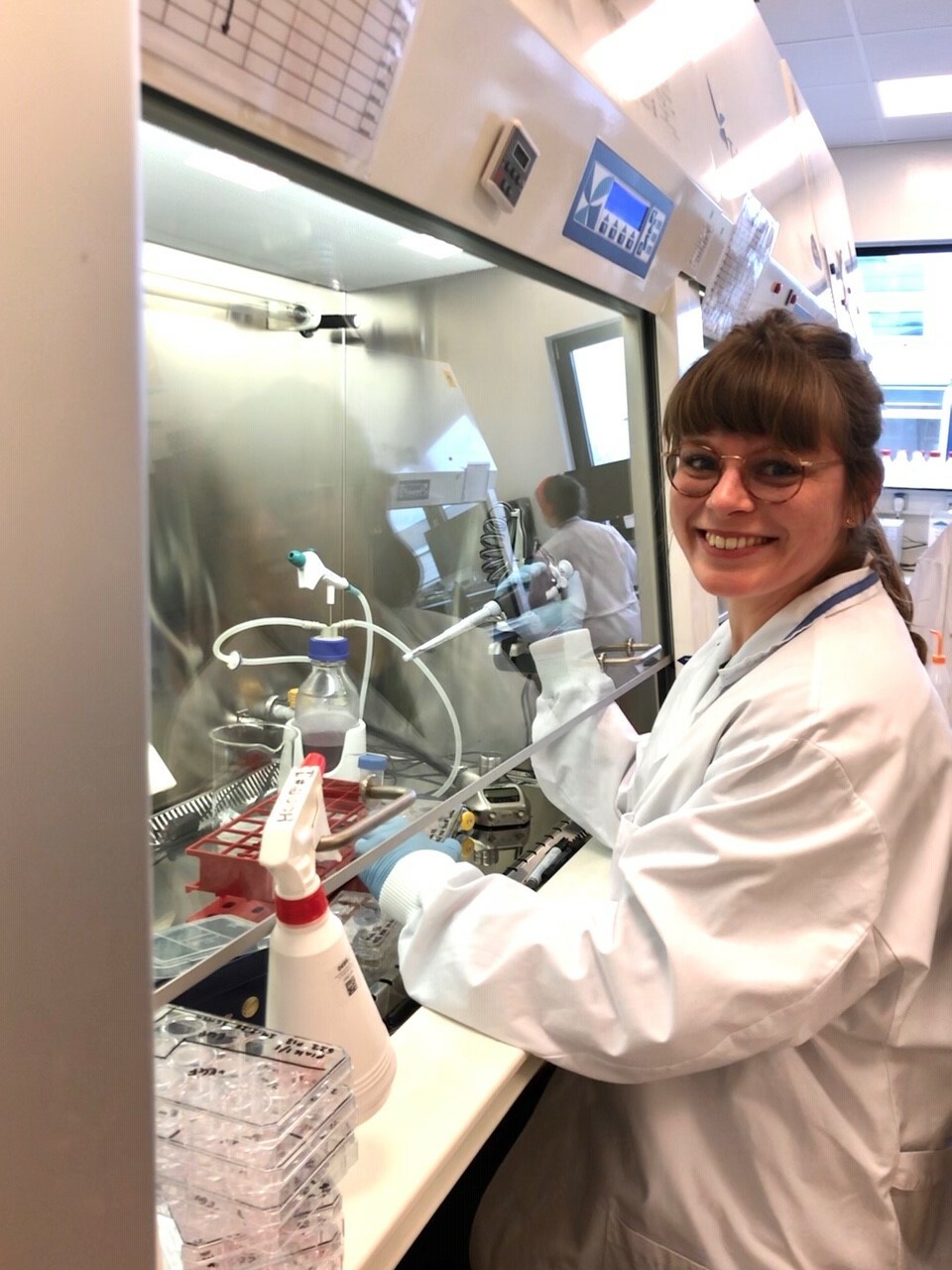To support (pre)clinical projects, Oncode launched the Clinical Proof of Concept (CPoC) fund with an open call for proposals. One of the first projects that has received CPoC funding is ‘Head and neck cancer organoids and their potential to predict patient therapy response’ - a collaboration between the Hubrecht Institute, UMC Utrecht and Hubrecht Organoid Technology (HUB). We asked Else Driehuis - postdoc in Oncode Investigator Hans Clevers’ lab and Tech Transfer Scientist at HUB - about the progress and her experience with working on this project.
Oncode aims to link fundamental and clinical research to enable efficient translation of promising research findings into novel diagnostic methods and clinical treatment strategies. To support these projects, Oncode launched the Clinical Proof of Concept (CPoC) fund with an open call for proposals. Oncode Investigators in collaboration with a clinician can submit proposals for (pre)clinical projects.
One of the first projects that has received CPoC funding is Head and neck cancer organoids and their potential to predict patient therapy response - a collaboration between the Hubrecht Institute, UMC Utrecht and Hubrecht Organoid Technology (HUB). We asked Else Driehuis - postdoc in Oncode Investigator Hans Clevers’ lab and Tech Transfer Scientist at HUB - about the progress and her experience with working on this project.
What is the goal of this project?
“After surgery, patients with advanced stage head and neck cancer are treated with radiotherapy, sometimes combined with chemotherapy. Unfortunately, the relapse rates of these patients are high, and the side-effects of the therapies are significant. What we do is that we derive organoids from head and neck tumours, to see how they respond to the treatment that patients receive in the clinic. The goal is to see if we can link organoid response to patient response. If we see that patient-derived organoids show the same response to therapy as the patient in the clinic, we can potentially help doctors predict whether a patient is going to respond well to the therapy or not, and therefore if it’s worth to put them through this intensive therapy.”
How did you get involved in this research?
“I was already working with organoid technology in the lab of Hans Clevers. Talking to Stefan Willems (pathologist, UMC Utrecht), we came to wonder if organoids can also be grown from head and neck squamous cell carcinoma. I decided to give it a try. I made some small changes to the protocols that were already used in the lab to grow organoids from other tissues, and it worked quite well. And then I learned from Stefan Willems, Lot Devriese (medical oncologist, UMC Utrecht) and Remco de Bree (head and neck surgeon, UMC Utrecht) that the survival rate for patients with advanced stage head and neck cancer is low and the chemotherapy that these patients undergo often has severe side-effects. And without knowing how they will respond to the treatment it is difficult for doctors to decide whether they should put patients through all this suffering or not. We decided that it would be worthwhile to investigate if organoids derived from these types of cancer can help predict patient response to the treatment and submitted a proposal for the Oncode CPoC fund to set up the project. We not only received the financial support, but also very valuable feedback from the Oncode team on how to improve the quality of our research and the best way to include data management.”

What is the current status of the project?
“We established 21 patient-derived organoid cultures and included 48 patients so far. Thanks to the CPoC fund, clinical PhD student Willem de Kort could also join the project. His role is to reach out to patients and collect the clinical data, which is not an easy task. The work he does helps our high inclusion rates and that makes a big difference. Our team has been further strengthened by Rosemary Millen, a postdoc in Hans Clevers’ lab with experience in linking clinical data to organoid response. Together, we work in close collaboration with a number of medical doctors, which is not only valuable in terms of patient inclusion, but our different perspectives also benefit discussions about our research. Collaborating on a project this way really bridges the gap between fundamental researchers and clinicians.”
As a fundamental researcher, how do you experience working on a clinical project like this?
“It has been a very interesting experience so far, since I didn’t have much expertise in translational science. I got to know very enthusiastic clinicians through this project. They talk to the patients on a daily basis, and they really go the extra mile for them. Some clinicians also gave me the opportunity to sit in on appointments they had with patients, and this was an incredibly eye-opening experience for me. A fundamental researcher usually doesn’t meet patients and having the chance to take part in these appointments really shifted my vision in regard to the work I do.”
The Hubrecht Institute previously produced a video about Else’s PhD research. In the video she discusses organoid research for head and neck tumours in more detail. Please watch it here (subtitles available in Dutch & English)
Oncode Investigators can still submit proposals for the CPoC fund. Please contact Marlinde Smit for more information.